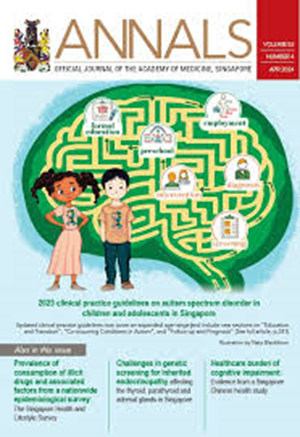Plasma selenium and zinc alter associations between nephrotoxic metals and chronic kidney disease: Results from NHANES database 2011–2018
IF 5.2
4区 医学
Q2 Medicine
引用次数: 0
Abstract
Introduction: Chronic kidney disease (CKD) is a condition defined as a persistent change in kidney structure or function, or both, that compromises human health. Environmental exposure to heavy metals (e.g. cadmium, lead, arsenic and mercury) is common, and high exposure levels are known to cause nephrotoxicity. Micronutrients such as selenium and zinc are positively associated with better kidney function and renal outcomes. This study determined the associations between CKD and heavy metal exposures measured in blood or urine within a community-dwelling population, and assessed whether and how selenium and zinc modified the associations. Method: Data were extracted from 4 cycles of the US National Health and Nutrition Examination Survey (NHANES) database (2011–2012, 2013–2014, 2015–2016 and 2017–2018). Results: Univariate analysis showed that higher quartiles of plasma lead and cadmium concentration were more likely associated with CKD than the lowest quartile, and along with folate, were linked to greater odds of CKD. Conversely, as plasma selenium and serum zinc increased, the odds of CKD decreased. Multivariate analysis had similar results after adjusting for relevant confounders. Higher plasma cadmium quartiles were associated with higher odds of CKD. Associations between higher quartiles of plasma selenium and serum zinc were significantly associated with lower odds of CKD. Conclusion: Elevated blood levels of heavy metals increase CKD, whereas elevated concentrations of plasma selenium and serum zinc decrease CKD. A high serum zinc concentration appears to interact with low-toxicity heavy metals to reduce CKD risk. This study suggests that increased selenium and zinc in the body along with avoidance of heavy metal exposures could protect against CKD.血浆硒和锌改变肾毒性金属与慢性肾脏疾病之间的关系:来自NHANES数据库2011-2018的结果
慢性肾脏疾病(CKD)是一种肾脏结构或功能的持续变化,或两者兼而有之,危及人体健康的疾病。环境暴露于重金属(如镉、铅、砷和汞)是常见的,已知高暴露水平会导致肾毒性。微量营养素如硒和锌与更好的肾功能和肾脏预后呈正相关。本研究确定了CKD与社区居民血液或尿液中重金属暴露之间的关系,并评估了硒和锌是否以及如何改变这种联系。方法:数据提取自美国国家健康与营养检查调查(NHANES)数据库(2011-2012、2013-2014、2015-2016和2017-2018)的4个周期。结果:单因素分析显示,血浆铅和镉浓度较高的四分位数比最低的四分位数更可能与CKD相关,并且叶酸与CKD的几率更高。相反,随着血浆硒和血清锌的增加,CKD的几率降低。在调整了相关混杂因素后,多变量分析得出了类似的结果。较高的血浆镉四分位数与较高的CKD发生率相关。血浆硒和血清锌的高四分位数与较低的CKD发生率显著相关。结论:血中重金属水平升高可增加CKD,而血浆硒和血清锌浓度升高可降低CKD。高血清锌浓度似乎与低毒性重金属相互作用以降低CKD风险。这项研究表明,增加体内的硒和锌以及避免重金属暴露可以预防慢性肾病。
本文章由计算机程序翻译,如有差异,请以英文原文为准。
求助全文
约1分钟内获得全文
求助全文
来源期刊

Annals Academy of Medicine Singapore
医学-医学:内科
CiteScore
4.90
自引率
5.80%
发文量
186
审稿时长
6-12 weeks
期刊介绍:
The Annals is the official journal of the Academy of Medicine, Singapore. Established in 1972, Annals is the leading medical journal in Singapore which aims to publish novel findings from clinical research as well as medical practices that can benefit the medical community.
 求助内容:
求助内容: 应助结果提醒方式:
应助结果提醒方式:


